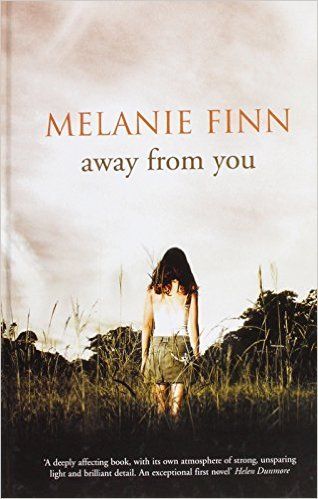The Writing of Away from You
The Writing of Away From You
When does a book begin? In odd places, little cracks, where it glimmers, catching the light from time to time.
In 1999, I was staying with a friend in the Mojave Desert, east of LA. I was broke and broken-hearted, I couldn’t see my way forward. The friend was reading a script I was working on. Half-way through, he said, “You should write a book.” I demurred, I couldn’t, I wasn’t a good enough writer, there was too much competition. He raised his eyebrows, “Someone like you won’t ever starve.”
I got his point, and began to draw together certain ideas for a novel based, very loosely, on my childhood. My father had been a terrible alcoholic, isolated, depressed; he had beaten me and terrified me, withheld affection and approval. But I knew he wasn’t a villain, he was capable of love – just not of showing it, or having it direct his life. I wanted to write about him – around him, as a way of understanding him better. And, through the process, to forgive him.
John, the handsome, successful father figure in Away From You, torments Ellie with his quiet violence:
‘Eleanor,’ he says. He is holding you by the arms, matchsticks in his hands. ‘You are to say nothing about what you saw this afternoon. Do you understand?’ Your eyes close tight, make it go away. He squeezes your arms so it hurts. Voice low to the ground like a snake: ‘Do you understand?’ He steals even your silence from you. ‘Yes,’ you whisper.
Wrapped around the personal core of the story, is the larger context of racial prejudice. I was born a year after Independence, but my childhood was essentially a colonial one, shaped - and tainted – by the values and strong, residual power of my race. My family were colonials, on both sides: Scots who’d gone to Africa because of opportunities and challenges not available to them in Great Britain. They professed – perhaps genuinely - to want to make life better for the poor, disorganised Africans; but they also wanted better lives for themselves: servants, large houses, authority, privilege.
These attitudes were my inheritance – my burden. The idea that my lovely black nanny was somehow less capable, less intelligent – less – than the white adults in my life who drank, gossiped and un-loved me was absurd. But because I was white, I felt culpable. The white race had done terrible things to the black race, a bare fact that had nothing to do with good intentions, or the continents own history of self-inflicted violence. This sense of guilt I reflected through Ellie, who is convinced her father is a murderer.
Who was he that he had killed a woman? And got away with it? She had been wrong when she’d surmised that he was nothing to do with her. She had inherited his crime, not just his wide jaw, his cool eyes, his money. What he had done belonged to her, no murderer’s child could ever disassociate herself from her father’s actions; guilt is not absolved through birth or death, it breaches generations like disease. She had never been an innocent child.
The whites of my childhood were not murderers. But they were extraordinarily careless. When we left Kenya, we left my nanny with nothing but a reference for another job and a small tip. This underpaid woman, who’d only seen her own children every six months, who had loved me and come into my life the day my mother brought me back from the hospital, was discarded.


